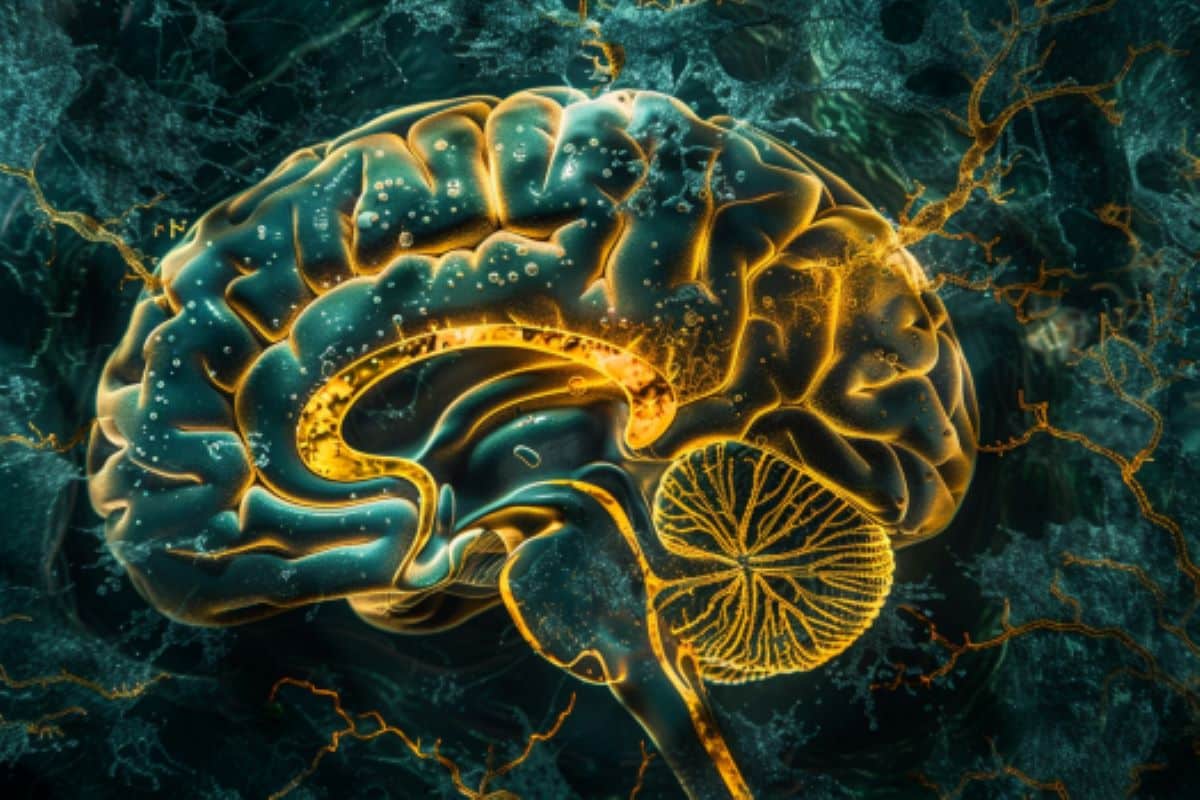Summary: Increased levels of bioactive lipids in the brain are linked to mental disorders by disrupting excitatory transmission between brain cells. Researchers have found that using an inhibitor to block these lipids can restore balance and potentially treat these conditions. The study highlights a new avenue for diagnosing and treating mental illnesses.
Highlights:
- Bioactive lipids in the brain affect excitatory transmission, thereby promoting mental disorders.
- An enzyme called autotaxin activates these lipids, which can be inhibited to restore balance.
- The results open up new possibilities for the diagnosis and treatment of mental disorders.
Source: University of Cologne
Increased levels of naturally produced bioactive lipids in the body, which affect excitatory transmission between brain cells, promote mental disorders.
This mechanism can, however, be rebalanced by treatment with an inhibitor that prevents the activation of these lipids in the brain. This is the result of a recent study on the correlation between synaptic lipid signals in the brain and mental disorders.

The results of the study “Impaired cortical synaptic lipid signaling leads to intermediate phenotypes of mental disorders” were published in Molecular Psychiatry and could create new opportunities for the treatment of mental illness.
The teams led by Johannes Vogt (MD) at the Department of Molecular and Translational Neurosciences at the University of Cologne, Robert Nitsch (MD, PhD) at the Institute for Translational Neurosciences at the University of Münster and partners from other universities studied the role of the enzyme autotaxin and its opponent, the protein PRG-1, in regulating the balance between excitation and inhibition in the brains of humans and mice.
The research was carried out within the framework of Collaborative Research Center 1451 “Key mechanisms of motor control in health and disease” (speaker: Professor Dr Gereon Fink, University of Cologne).
The project under the direction of Vogt and Nitsch at the CRC addresses the balance between excitation and inhibition in the brain and its effect on motor function.
This balance plays an important role in mental disorders. When excited, neuronal circuits cause the transmission of information and the activation of other neurons; in the event of inhibition, this transfer of information is interrupted.
The Cologne and Münster project groups had already shown in previous studies that brain lipids are activated by the enzyme autotaxin and stimulate the activity of nerve cells at the central control point of signal transmission, the cortical synapse. . As a result, they modify information processing in brain networks.
In the present study, researchers analyzed the functional consequences of an alteration of the signal balance in 25 individuals induced by the antagonist autotaxin, which reduces activated lipids at the synapse.
Using various methods of measuring brain waves and brain activity as well as psychological tests, they discovered specific changes that also occur in patients, called intermediate phenotypes of mental disorders.
This means, for example, that comparable patterns of brain activation can be found both in patients and in their clinically healthy relatives.
Additional studies in the mouse model revealed that animals with a similar genetic disease showed comparable symptoms: increased anxiety, a depressive phenotype, and lower resilience to stress. Synchronization and transfer of information between brain areas was similarly impaired in humans and mice.
“The study indicates that the regulation of excitation and inhibition by synaptic lipid signals plays a crucial role in the development of mental disorders,” said Professor Vogt.
Autotaxin is the key enzyme for lipid activation in the mouse and human brain. The increased excitatory state of the networks caused by the genetic disease could be restored by administering specific autotaxin inhibitors. According to the researchers, these discoveries open new perspectives for the diagnosis and treatment of these disorders.
“Targeted modulation of synaptic lipid signals using autotaxin inhibitors that can reach the brain could pave the way for the treatment of mental disorders,” concluded Professor Nitsch.
In future studies, the researchers plan to further study these approaches and test their effectiveness and safety in clinical trials.
About this mental health research news
Author: Eva Schüssler
Source: University of Cologne
Contact: Eva Schissler – University of Cologne
Picture: Image is credited to Neuroscience News
Original research: Free access.
“Impaired cortical synaptic lipid signaling leads to intermediate phenotypes of mental disorders” by Johannes Vogt et al. Molecular Psychiatry
Abstract
Impaired cortical synaptic lipid signaling leads to intermediate phenotypes of mental disorders
The excitation/inhibition (E/I) balance plays an important role in mental disorders. Bioactive phospholipids such as lysophosphatidic acid (LPA) are synthesized by the enzyme autotaxin (ATX) at cortical synapses and modulate glutamatergic transmission, and ultimately modify the E/I balance of cortical networks.
Here, we analyzed the functional consequences of impaired E/I balance in 25 human subjects induced by genetic disruption of the synaptic lipid signaling modifier PRG-1, which were compared to 25 age-matched control subjects and sex.
Additionally, we tested therapeutic options targeting ATX in a related mouse line. Using EEG combined with TMS in an instructed fear paradigm, neuropsychological analysis, and an fMRI-based episodic memory task, we found intermediate phenotypes of mental disorders in human carriers of a lossy single-nucleotide polymorphism function of PRG-1 (PRG-1R345T/WT). Prg-1R346T/WT animals phenocopied human carriers exhibiting increased anxiety, a depressive phenotype, and lower resilience to stress.
Network analysis revealed that coherence and phase-amplitude coupling were impaired by PRG-1 impairment of memory-related circuits in humans and mice.
Brain oscillation phenotypes were restored by ATX inhibition in Prg-1 deficient mice indicating potential for intervention in mental disorders.